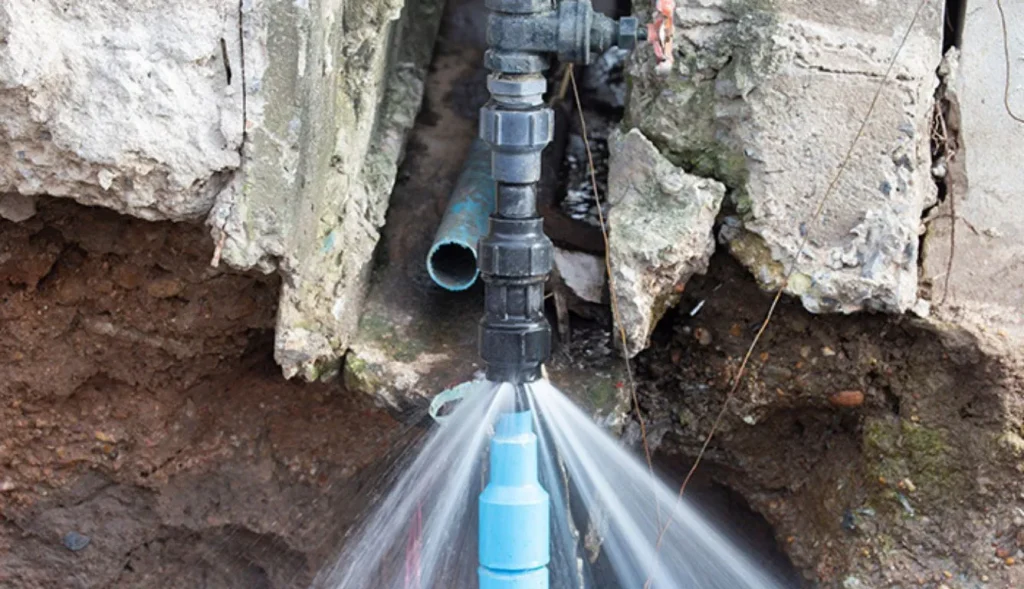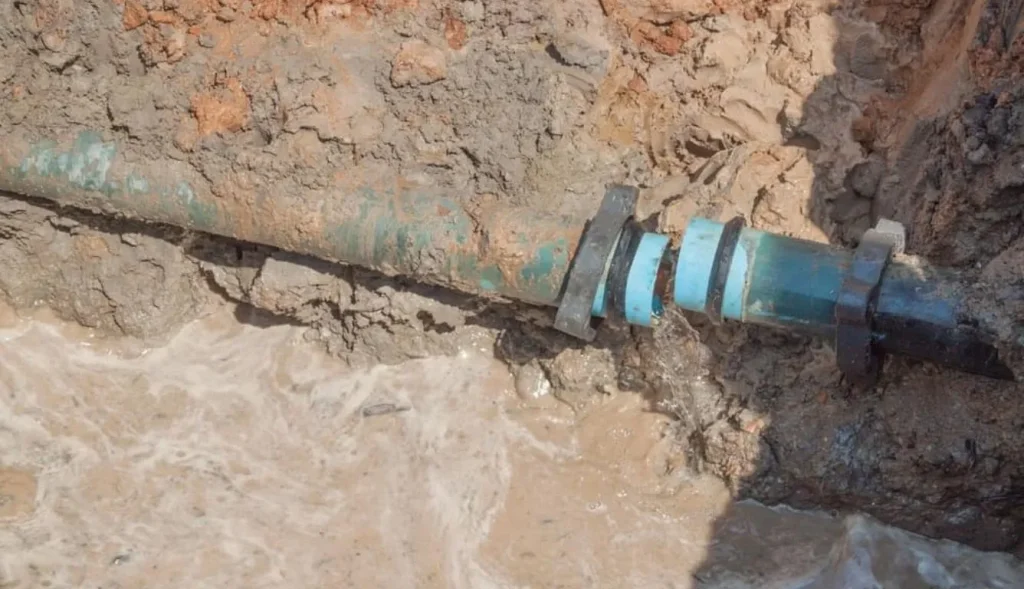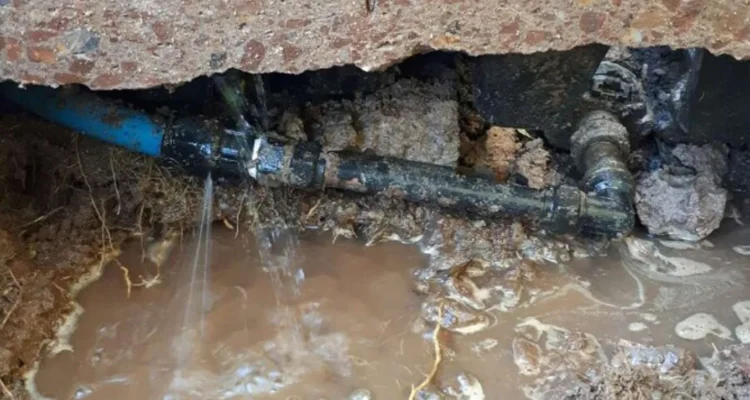Introduction
A burst pipe underground can be a nightmare for homeowners, leading to expensive repairs and potential damage to your property. Identifying a problem before it becomes a major issue can save you time, money, and stress. This guide will walk you through the signs of an underground pipe burst and what steps to take if you suspect one.

Understanding the Risks
1. Why Underground Pipe Bursts Happen
Underground pipes are susceptible to various issues, including soil movement, freezing temperatures, and general wear and tear. Understanding these risks can help in early detection and prevention.
2. Common Causes of Underground Pipe Bursts
Pipes can burst due to several factors:
- Freezing Temperatures: Water expands when it freezes, putting pressure on pipes.
- Soil Movement: Shifting soil or poor drainage can stress pipes.
- Aging Pipes: Older pipes are more likely to fail due to material degradation.
Signs of a Burst Pipe
3. Unusual Wet Spots in Your Yard
One of the most noticeable signs of a burst pipe is wet spots or pools of water in your yard. These spots may appear suddenly and can be a clear indicator of a pipe problem.
4. Higher Water Bills
A sudden increase in your water bill without a change in usage could suggest a hidden leak or burst pipe. Monitor your bills for any unexplained spikes.
5. Low Water Pressure
A burst pipe can lead to a drop in water pressure. If you notice that your water pressure is unusually low, it could be a sign of a leak or burst pipe.
6. Unpleasant Odors
If you smell unpleasant odors or sewage, it might indicate that a burst pipe is allowing wastewater to seep into the ground.
Detecting the Issue
7. Visual Inspection
Conduct a visual inspection of your property. Look for any signs of standing water, wet patches, or unusual changes in the landscape.
8. Using a Moisture Meter
A moisture meter can help detect hidden moisture in the ground. This tool can be especially useful if you suspect an underground issue.
9. Listening for Unusual Sounds
Sometimes, you can hear the sound of running water or gurgling noises coming from the ground. These sounds might indicate a burst pipe.
10. Professional Pipe Inspection
If you suspect an underground pipe burst but can’t find the exact location, a professional plumber can use specialized equipment like cameras and sensors to pinpoint the problem.
Repairing a Burst Pipe
11. Temporary Measures
If you discover a burst pipe, take temporary measures to minimize damage:
- Turn Off the Water Supply: Locate the main water valve and shut it off to stop further leakage.
- Notify Your Water Provider: Inform your local water provider of the issue. They may assist with emergency repairs or advice.
12. Professional Repair Services
Hire a licensed plumber to inspect and repair the burst pipe. They will have the expertise and equipment needed to handle the repair and ensure the problem is fixed correctly.
Preventing Future Bursts
13. Regular Maintenance
Regularly check your pipes for signs of wear and tear. Ensure that your plumbing system is well-maintained to prevent future issues.
14. Insulate Pipes
In colder climates, insulating your pipes can prevent them from freezing and bursting.
15. Improve Drainage
Ensure proper drainage around your property to reduce soil movement and pressure on your pipes.
FAQs
1. How can I tell if my underground pipe is leaking?
Look for signs such as wet spots in your yard, higher water bills, or low water pressure. Using a moisture meter and listening for unusual sounds can also help.
2. What should I do if I suspect an underground pipe burst?
Turn off the water supply, notify your water provider, and contact a licensed plumber for a professional inspection and repair.
3. Can a burst underground pipe cause damage to my property?
Yes, a burst pipe can lead to water damage, erosion, and other issues. It’s important to address the problem as soon as possible to minimize damage.
4. How can I prevent my pipes from bursting in cold weather?
Insulate your pipes and ensure they are protected from freezing temperatures. Regular maintenance can also help prevent issues.
5. Are there any DIY methods for fixing a burst underground pipe?
While some minor leaks can be fixed DIY, a burst underground pipe typically requires professional repair due to the complexity and potential for significant damage.

Conclusion
Identifying and addressing an underground pipe burst quickly can save you from significant damage and repair costs. By staying vigilant for the signs of a burst pipe and taking preventive measures, you can protect your home and plumbing system. If you suspect a problem, don’t hesitate to contact a professional for assistance.


Congratulation!